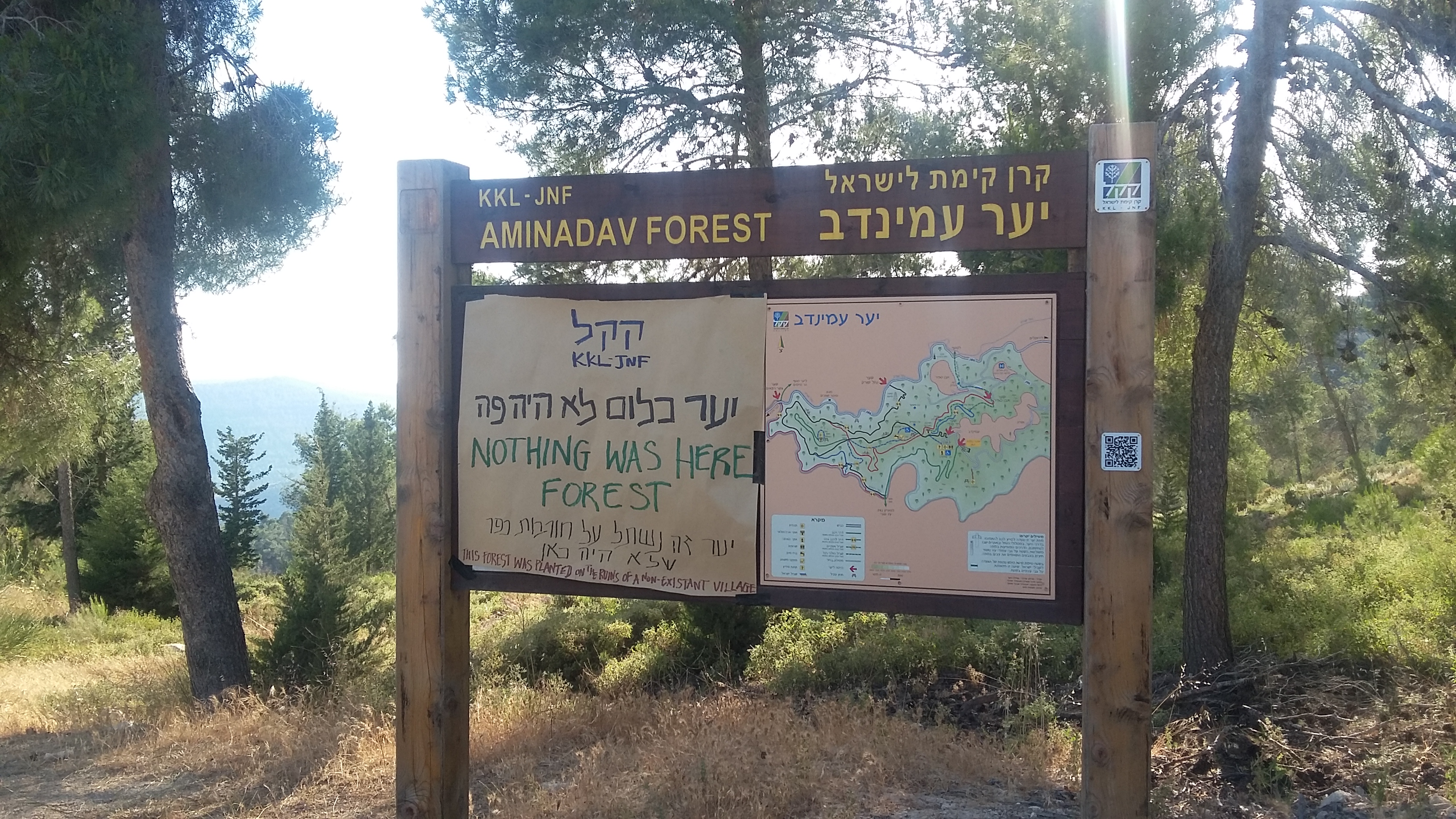
Satirical signs replacing JNF forest signs near Jerusalem as part of the international week of action, May 16, 2016 AFSC / AFSC
This week is a global week of action for SEDQ: A Global Jewish Network for Justice. They are inviting people around the globe to participate in “Cultivating Justice: a Global Week of Action and Education challenging the JNF." This week aims to encourage a closer look at the historical and current work of the Jewish National Fund (JNF). AFSC's Israel program coordinator, Sahar Vardi, is a part of the network and has participated in the actions. She received this piece from Jordy Silverstein, who lives in Melbourne and is also a part of the network.
In 1901, at the Fifth Zionist Congress in Basel, the Jewish National Fund (JNF – known in Israel as Keren Kayemeth L’Israel (KKL)) was founded. From its beginnings, supported by Theodor Herzl, its mission was to acquire land for Jews in the area today known as Israel-Palestine. This has been described as an intention to “redeem the land of Israel… serving as trustee of that land for Jewish People everywhere.” In this task, the JNF “has been steadfast and unwavering.”
In 2004, the JNF-KKL affirmed that “as a landowner, [it] is not a public body that works for the benefit of all citizens of the state. The loyalty of the JNF is given to the Jewish people and only to them is the JNF obligated. The JNF, as the owner of the JNF land, does not have a duty to practice equality towards all citizens of the state.”
Since 1991, the JNF-KKL has worked together with Elad, “an extremist settler organisation”, to evict Palestinian families from their homes in Silwan, a neighbourhood in East Jerusalem. Indeed, since its inception, the JNF has been involved in the processes of evicting Palestinians and claiming land across the area, using various forms of disguise in order to acquire land for Jewish people. Once the land is owned by the JNF-KKL, it cannot be resold.
By 2013, 12% of public land in Israel was owned by the JNF; in places where there is “high demand for residential construction [it] is thought to be much higher - about 30% to 35%.”
In 1904 the first Blue Boxes were produced, after Haim Kleinman, a bank clerk living in Galicia, had placed a blue box on his work counter, encouraging people to donate to the new “National Fund”. Over time, these boxes were spread around the world. One national JNF office describes these boxes – and the ritualised act of donating money through them – as “a cherished, popular means to realize the Zionist vision of establishing a state for the Jewish people.” Another says that “ the proceeds of the Blue Box… were slated for the redemption of the land itself.”
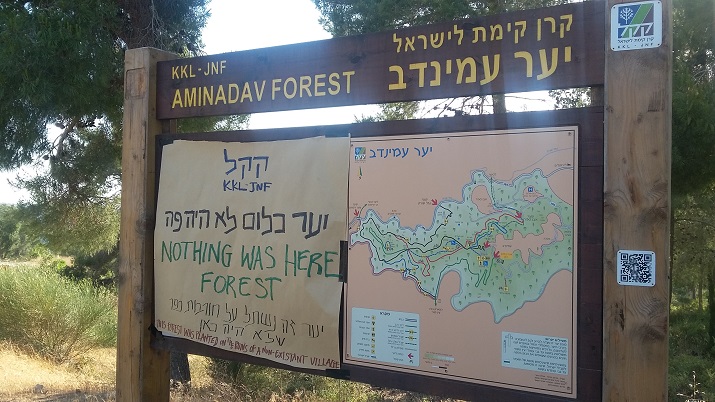
In 2010, the Israel Land Authority – working with and for the Jewish National Fund – initiated a new stage of demolition of homes and communities in Al Araqib, a Bedouin village in the Negev. The JNF also has “deep roots” throughout the West Bank, and works with other organisations and subsidiaries, such as Himnuta, to acquire land there.
The JNF, it is thus apparent, has operated in numerous ways over the years since its inception. These are just a few of the very many actions it has taken to further Jewish ownership of land.
And every day of every year people around the world give the JNF money, whether through a Blue Box located in their home or community building; through a donation in honour of a barmitzvah, a birth, a bris, a wedding, a death; as an ongoing donation; or for any other reason. The JNF has, somehow, managed to make itself inextricably linked with global Zionist life, claiming to be involved in tree planting and land regeneration, covering over the active work it does in dispossessing Palestinians of their lands, acquiring them for Jewish people.
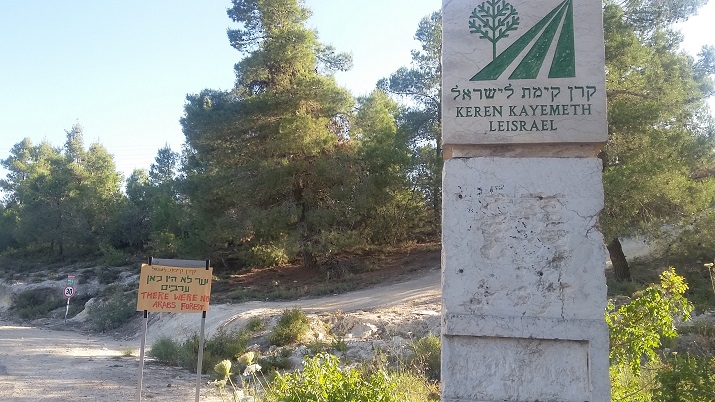
But even in the language of tree-planting, farming, and land regeneration, there are colonial overtones, as lands are deemed to be “empty," Palestinians are claimed to be unable to properly farm, and lives lived on the land are erased. These are stories with long histories throughout the colonized world: it is the colonizer who believes only it can “redeem” the land, bring it to its full glory. The colonized are imagined as inherently destructive. And yet it is the JNF-KKL that plants trees which are non-indigenous, and which often destroy the environment. And these forests of trees are often built on destroyed Palestinian villages.
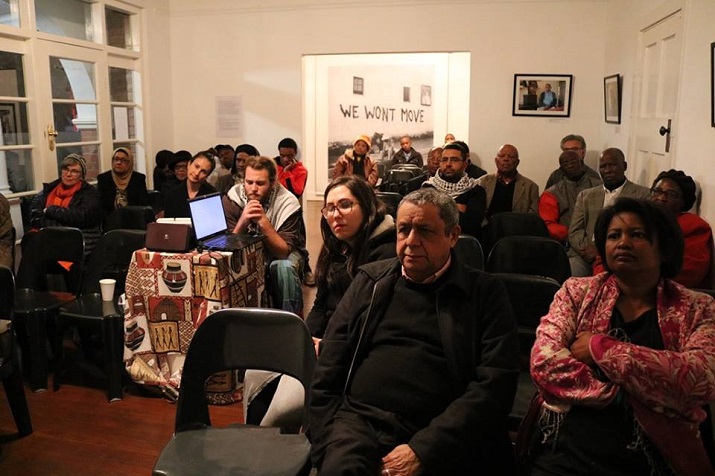
If this is, and always has been, a set of actions and practices which occur in Israel-Palestine with support from Jewish communities outside that space, then dissent to these practices are also something which occur throughout the world, both within Israel-Palestine and outside. Jewish organizations are increasingly issuing calls for the JNF to cease their work in the Occupied Territories, to become more transparent, to end their evictions of Palestinians from their homes, to stop encouraging and aiding the destruction of Bedouin villages, to halt their use of talk of the environment as a cover for dispossessing Palestinians.
Sedq: A Global Jewish Network for Justice (sedq means a crack, or fissure), a new global network of Jews working towards creating justice in Israel-Palestine has thus created ‘Cultivating Justice: A Global Week of Action and Education Challenging the JNF’, which is running from May 22 to 29. Involving activities around the world – in Argentina, Australia, Belgium, Brazil, Canada, Israel, South Africa and the United States – this week seeks to amplify voices of dissent, demonstrating that not all Jews, and not all Zionists (for they are 2 different things), support the work that the JNF-KKL does or the kind of Israel-Palestine that it envisages. We have chosen this week as it sits between two historic events that the JNF is closely linked to: Israel’s creation on May 15, 1948, known to Palestinians as al-Nakba (the catastrophe) due to the forced exile of roughly 750,000 inhabitants; and the June 1967 War and subsequent 49 years of military occupation, which Palestinians commemorate as al-Naksa (the setback).
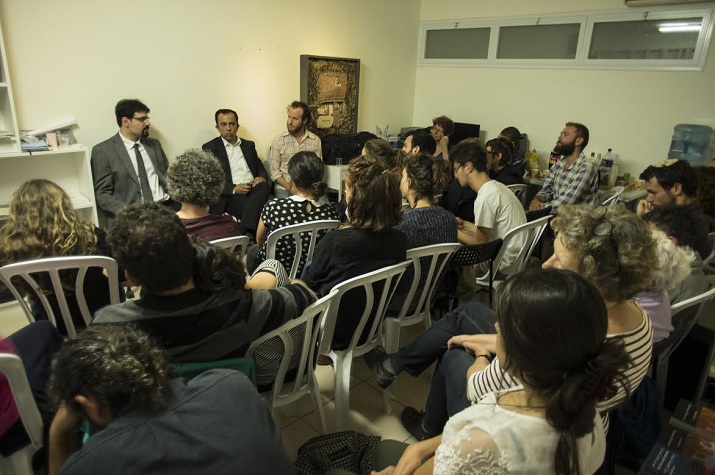
From film screenings and discussion groups, to talks with Palestinian lawyers and meetings with people in their own countries who have faced similar evictions and losses of land, during this week Jewish people are coming together to learn, to share stories, to have their ideas challenged, to educate, and to take action against the work of the JNF and the support it has throughout the world. Throughout the week we’ll be using the hashtag #cultivatejustice, as we work together to change the terms of discussion: from using trees as a cover for racism, discrimination and violence, to a sense of a diverse group of people bound together in working for justice.
Related content
Visualizing return: A young Palestinian visits her family's destroyed villages